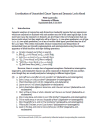 Coordination of Unmatched Clause Types and Dynamic Look-Ahead Coordination of Unmatched Clause Types and Dynamic Look-Ahead
Uses dynamic semantics to account for sentences in which clauses of different types are coordinated (for example, a declarative with an interrogative, or an interrogative with an imperative, etc.) To account for examples with disjunction, contexts must include information about their own potential future developments. Also includes an analysis of non-declarative conditional sentences. Unpublished draft [514K]; comments welcome. |
 Common Nouns as Modally Non-Rigid Restricted Variables Common Nouns as Modally Non-Rigid Restricted Variables
Argues that common nouns should be analyzed as modally non-rigid restricted type e variables, rather than as constants of type 〈e, t〉. This predicts that all nominal quantification is conservative, derives the weak reading of donkey anaphora and solves the proportion problem without additional stipulation, improves the analysis of the temperature paradox, allows a more unified treatment of bare plurals, regularizes the correspondence between syntactic categories and semantic types, and explains the easy omissibility of articles. Linguistics and Philosophy 44.2.363–424 (2021). Prefinal version [1049K] includes material omitted from the published version. |
 Common Nouns as Variables: Evidence from Conservativity and the Temperature Paradox Common Nouns as Variables: Evidence from Conservativity and the Temperature Paradox
A more limited version of the paper above. Argues that common nouns should be analyzed as modally non-rigid restricted type e variables, rather than as constants of type 〈e, t〉. This predicts that all nominal quantification is conservative, and makes possible some improvements in the analysis of the temperature paradox. Proceedings of Sinn und Bedeutung 21 vol. 2 pp. 731–746 (2018) [305K]. |
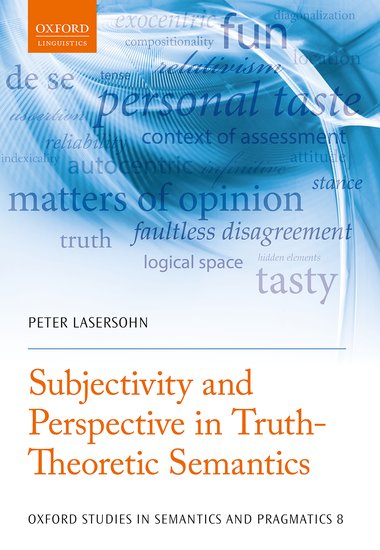 Subjectivity and Perspective in Truth-Theoretic Semantics Subjectivity and Perspective in Truth-Theoretic Semantics
Book-length development of relativist semantics for predicates of personal taste and other expressions. Includes analyses of indexicality, attitude reports (including de se attitudes), autocentric vs. exocentric assessment, the functional motivation for relativist semantics, and other topics. Oxford University Press (2017). Prefinal version [2.1M]. |
 Non-World Indices and Assessment-Sensitivity Non-World Indices and Assessment-Sensitivity
Argues that a semantic theory should employ indices other than possible worlds in the assignment of truth values to sentence contents only when the values of such indices are fixed by the context of assessment, not the context of use, eliminating MacFarlane’s category of “non-indexical contextualism.” Inquiry 56.2-3.122-148 (2013). (Earlier version presented at the conference “Contexts, Perspectives, and Relative Truth” held at the University of Bonn, June 9–11, 2011.) Prefinal version [207K]. |
 Contextualism and Compositionality Contextualism and Compositionality
Advocates strictly separating the question of whether meaning assignment is compositional from issues of how people figure out the meanings of complex expressions; argues that compositional interpretation is consistent with radical contextual effects on truth conditions. Linguistics and Philosophy 35.2.171-189 (2012). Earlier version presented under the title ‘On the Possibility of Compositional Pragmatics’ at the conference “Contextualism and Compositionality,” École Normale Supérieure, Paris, May 17–20, 2010. Prefinal version [156K]. |
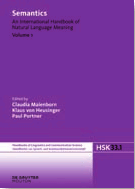 Mass Nouns and Plurals Mass Nouns and Plurals
Surveys the semantics of mass and plural expressions. Semantics: An International Handbook of Natural Language Meaning, ed. by Klaus von Heusinger, Claudia Maienborn and Paul Portner, DeGruyter, vol. 2, pp. 1131–1153 (2011). Prefinal version [203K] contains material not included in published version. |
 Context, Relevant Parts and (Lack of) Disagreement over Taste Context, Relevant Parts and (Lack of) Disagreement over Taste
Responds to an argument against relativist semantics advanced in Cappelen and Hawthorne’s Relativism and Monadic Truth. Philosophical Studies 156.3.433–439 (2011). Prefinal version [87K]. |
  Relative Truth, Speaker Commitment, and Control of Implicit Arguments Relative Truth, Speaker Commitment, and Control of Implicit Arguments
Motivates a relativist semantics independently of “faultless disagreement” by examing the behavior of predicates of personal taste in factive environments and under the verb consider. Synthese 166.359–374 (2009). Prefinal version [142 K]. Slightly revised from the version in the proceedings of NELS 37 [217K]. |
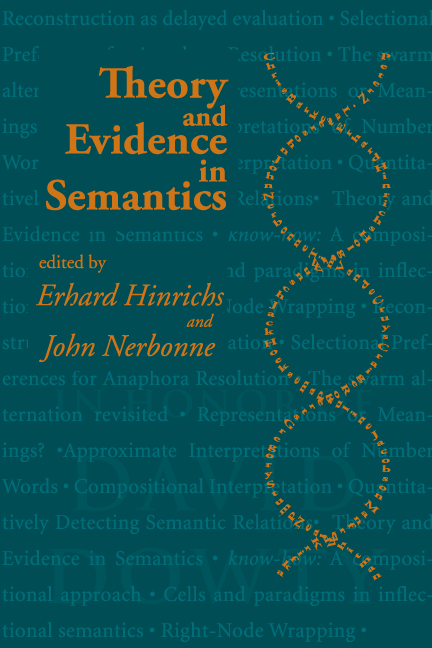 Compositional Interpretation in which the Meanings of Complex Expressions are not Computable from the Meanings of their Parts Compositional Interpretation in which the Meanings of Complex Expressions are not Computable from the Meanings of their Parts
Argues for separating the principle that meaning be computable from the principle of homomorphic interpretation, rather than conflating them both into a single “principle of compositionality.” Homomorphic interpretation must then be justified on grounds other than language users’ ability to understand novel sentences. Theory and Evidence in Semantics, ed. by Erhard Hinrichs and John Nerbonne, CSLI Publications, 133–158 (2009). Prefinal version [226K]. |
 Quantification and Perspective in Relativist Semantics Quantification and Perspective in Relativist Semantics
Attempts to clarify some issues about the use of hidden arguments to predicates of personal taste, and motivate an analysis which does not make use of such arguments. Philosophical Perspectives 22.305–337 (2008). Prefinal version [222K]. |
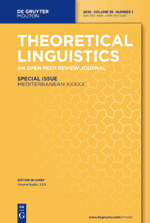 Expressives, Perspective and Presupposition Expressives, Perspective and Presupposition
Commentary on Chris Potts’ paper ‘The Expressive Dimension’. Theoretical Linguistics 33.223–230 (2007) Prefinal version [67K]. |
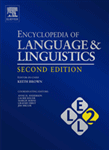 Event-Based Semantics Event-Based Semantics
Survey of semantic analyses using quantification of hidden variables over events. Encyclopedia of Language and Linguistics, 2nd edition, ed. by K. Brown, Elsevier, vol. 4, 316–320 (2006). Prefinal version [114K]. |
 Plurality Plurality
Survey of semantic issues related to plurality. Encyclopedia of Language and Linguistics, 2nd edition, ed. by K. Brown, Elsevier, vol. 9, 642–645 (2006). Prefinal version [110K]. |
 Context Dependence, Disagreement, and Predicates of Personal Taste Context Dependence, Disagreement, and Predicates of Personal Taste
Argues that sentences containing “predicates of personal taste” such as fun or tasty vary in truth value from individual to individual without varying in semantic content, and formalizes this idea in a Kaplan-style semantics. Linguistics and Philosophy 28.643–686 (2005). Prefinal version [254K]. |
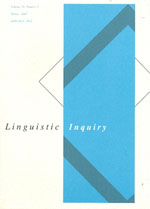
The Temperature Paradox as Evidence for a Presuppositional Analysis of Definite Descriptions
Argues that an improvement to Montague’s treatment of the temperature paradox requires abandoning the Russellian analysis of definite descriptions in favor of a presuppositional analysis. Linguistic Inquiry 36.127–134 (2005). Prefinal version [123K]. |
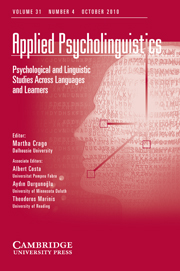
Review of Flexibility Principles in Boolean Semantics by Yoad Winter
Applied Psycholinguistics 24.317–319 (2003). |

Same, Models and Representation
Argues against Nunberg’s (1984) analysis of same and different, and presents an alternative based on the technique of “pragmatic halos.” Includes discussion on basic methodological issues in model-theoretic semantics. Proceedings from Semantics and Linguistic Theory X, ed. by B. Jackson and T. Matthews, CLC Publications, 83–97 (2000) [161K]. |
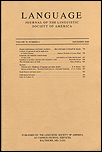 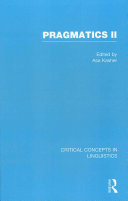
Pragmatic Halos
Argues that certain expressions serve to indicate the intended degree of approximation to the truth, and presents a technique for formalizing their semantics in terms of such approximation. Language 75.522–551 (1999). Republished in Pragmatics II, vol. 2, 522–551, ed. by Asa Kasher, Routledge (2011). |

Parts, Wholes and Still
This is a short paper on the meaning of still, which takes as its starting point a medieval sophism discussed by William of Sherwood. Studies in the Linguistic Sciences 29.81–86 (1999). |

Generalized Distributivity Operators
Presents a series of generalizations of distributivity operators across a type hierarchy, in order to account for collective-distributive ambiguities for non-subject arguments. Linguistics and Philosophy 21.83–93 (1998). |

Events in the Semantics of Collectivizing Adverbials
Revises and defends an event-mereological analysis of together in light of arguments advanced in Roger Schwarzschild’s ‘Plurals, Presuppositions and the Sources of Distributivity’. Events and Grammar, ed. by Susan Rothstein, Springer, 273–292 (1998). Prefinal version [145K]. |

Bare Plurals and Donkey Anaphora
Argues that a kinds-based analysis of bare plurals is incompatible with an analysis of donkey anaphors as variables, but compatible with an E-type analysis. Natural Language Semantics 5.79–86 (1997). |

Adnominal Conditionals
Argues that certain conditional clauses are irreducibly adnominal, so that if cannot be treated purely as a sentential connective. A unified analysis of adnominal if-clauses and ordinary if-clauses is possible, however, if we assume a semantic theory in which sentences denote sets of events rather than truth values. Proceedings from Semantics and Linguistic Theory VI, ed. by T. Galloway and J. Spence, CLC Publications, 154–166 (1996) [128K]. |
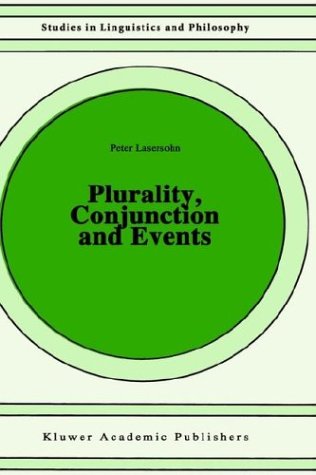
Plurality, Conjunction and Events
Surveys the history of theorizing about the collective-distributive alternation, presents a semantic analysis of this alternation, and unifies the semantics of plurality and conjunction, using event mereology. Springer (1995). |
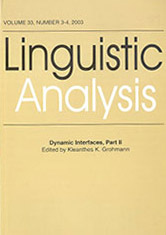
Sounds Like Like
Argues that the verb sound is ambiguous between one reading where it denotes a two-place relation between individuals and properties, and a second reading where it serves as a one-place predicate of propositions, and for a corresponding ambiguity in the adjective like. Linguistic Analysis 25.70–77 (1995). Prefinal version [77K]. |
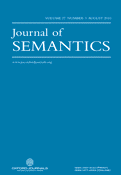
Existential Presuppositions and Background Knowledge
Argues that the intuition of a truth value gap in cases of presupposition failure depends on the discourse information state, and in particular whether sufficient information is in the common ground to preclude the truth of the sentence on independent grounds; formalizes this analysis in a semantics using data lattices. Journal of Semantics 10.113–122 (1993). |

Lexical Distributivity and Implicit Arguments
Argues for an analysis of implicit arguments using a neo-Davidsonian representation of thematic roles, based on interaction with lexically based distributive interpretations. Proceedings from Semantics and Linguistic Theory III ed. by U. Lahiri and A. Wyner, DMLL Publications, 145–161(1993). |

Generalized Conjunction and Temporal Modification
Argues for an assimilation of sentential and predicate conjunction to collective conjunction, based on modification of predicates by adverbs such as alternately. Linguistics and Philosophy 15.381–410 (1992). |

Group Action and Spatio-Temporal Proximity
Presents a unified semantics for various readings of together, using event mereology. Linguistics and Philosophy 13.179–206 (1990). |

Inclusion-Checking, Exclusion-Checking and Cumulativity
Addresses problems in the interaction of negative quantifiers with cumulative readings for plural predicates. Texas Linguistic Forum 31.55–70 (1989) [1026K]. |
 
On the Readings of Plural Noun Phrases
Argues against a Gillon-style covers-based analysis of plural noun phrases. Linguistic Inquiry 20.130–134 (1989). Reprinted in Semantics: Critical Concepts in Linguistics, Vol. III: Noun Phrase Classes, ed. by Javier Guttiérrez-Rexach, Routledge,
370–374, (2003). |
 A Semantics for Groups and Events A Semantics for Groups and Events
My dissertation, completed (1988) under the supervision of Prof. David Dowty at Ohio State University. Addresses a variety of issues in the semantics of plurality, in an event-mereological framework. The version reproduced here was published (1990) by Garland [8836K]. Reissued by Routledge (2016). |
 Collective Nouns and Distributive Determiners Collective Nouns and Distributive Determiners
Considers the interaction of collectively interpreted relative clause with determiners that impose a distributive reading, in partitive and non-partitive noun phrases. Papers from the 23rd Regional Meeting of the Chicago Linguistic Society, Part One: The General Session, ed. by Barbara Need, Eric Schiller and Anna Bosch, Chicago Linguistic Society, 215–229 (1987) [1785K]. |

The Semantics of Appositive and Pseudo-Appositive NP’s
Presents a semantic analysis of two kinds of juxtaposed noun phrase constructions, with attention to restrictions on determiner choice. Proceedings of the Third Eastern States Conference on Linguistics, ed. by Fred Marshall, Ann Miller and Zheng-Sheng Zhang, Ohio State University, 311–322 (1986) [1785K]. |



















 Peter Lasersohn
Peter Lasersohn, Professor of Linguistics and Philosophy, University of Illinois at Urbana-Champaign
Peter Lasersohn
Peter Lasersohn, Professor of Linguistics and Philosophy, University of Illinois at Urbana-Champaign













